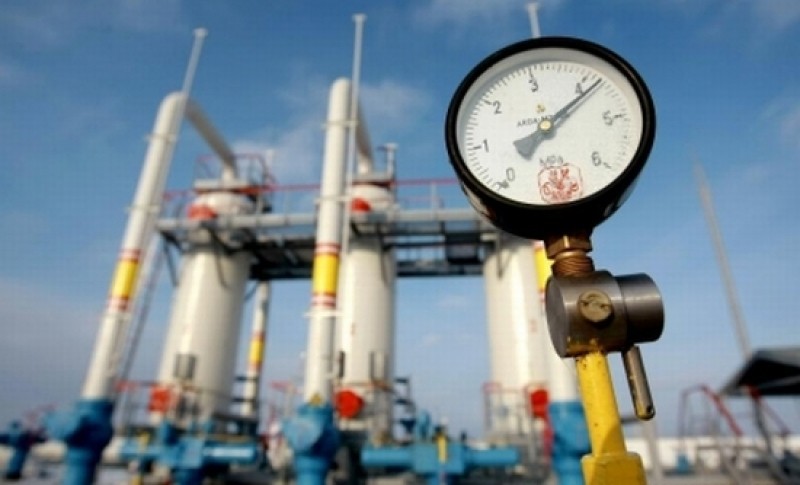Natural gas prices are on record high and bad news for everyone, from Chinese pottery producers to pastry customers in Paris, according to an analysis by the Institute for Energy Economics and Financial Analysis, which says the coming winter will give the world a painful lesson about how important gas has become for the economy, reports Bloomberg.
The cost of natural gas is already at record levels for this period in most markets and will probably increase further, risking endangering the recovery from the Covid-19 pandemic, informs News.ro.
Too high prices could cut people’s spending and erode wages through inflation, and central banks will have to make difficult decisions.
Worse, current supply deficits could have a negative effect on industrial activity, even causing energy shortages in developing countries, which could lead to social unrest.
“Energy is the foundation of an economy,” said Bruce Robertson, an analyst at the Institute for Energy Economics and Financial Analysis.
“High energy prices are reverberating through the supply chain,” and could prevent an early recovery, he said.
Energy costs are rising around the world, as recovery in demand from the worst blockages caused by Covid-19 is hit by supply constraints.
Oil has already seen a long rise, which began in late 2020 and ended in July with multi-year highs of more than $ 75 a barrel.
Gas prices began to rise sharply in early summer in the northern hemisphere, when it became increasingly clear that there was not enough supply in Europe to allow normal recovery of depleted winter stocks.
The continent’s largest supplier, Russia, is limiting exports through pipelines for several reasons, including high domestic demand, production disruptions and an agreement to reduce deliveries through Ukraine.
“We have been late in stockpiling all summer,” said Alfred Stern, general manager of the Austrian oil and gas producer OMV.
Consumers in Europe are now at the mercy of the weather, and the trajectory of prices “will now depend on how cold it will be this winter,” Stern added.
In Europe, the price of gas has exceeded that of oil, but the problem is not limited to this region.
While Russia’s supply constraints do not directly affect Asian consumers, they must compete with Europe for liquefied natural gas supplies at sea, forcing them to pay higher prices to secure deliveries.
“High gas prices are a problem for Europe today. It could be a problem for Asia as well,” Enel CEO Francesco Starace said in an interview with Bloomberg TV on Friday.
The LNG market is the one that connects Europe, Asia and the USA, and the high prices there are expanding on the American domestic market, stimulating higher exports of liquefied fuel.
Term contracts for natural gas in New York have increased by 80% this year, to the highest level in 2018, although they are still much lower than in other major global markets.
“The European market and the American market are in a similar place as we move towards the warm-up season. There may be concerns about reserve adequacy if we have colder-than-normal weather, given high expectations for LNG exports, “said Nina Fahy, a gas analyst at Energy Aspects in New York. York.
All over the world, the economic consequences of rising gas prices are becoming apparent. Tereos SCA, France’s largest sugar producer, warned last month that the price of fuel is affecting sugar processing in Europe, greatly raising production costs, according to an email sent to customers seen by Bloomberg News.
High energy prices create “inflationary pressure on any other cost” that will be passed on to customers, said Pascal Leroy, senior vice president for basic resources at Roquette Freres SAS, a food processing company in northern France.
In China, the world’s largest importer of gas, pottery factories have been forced to cut production due to high prices in Guangdong and Jiangxi provinces, according to local reports.
Rising utility bills have “sabotaged” the business of Pakistan’s Mughal Steels steelmaker, according to chief operating officer Shakeel Ahmad.
“We consume gas first and receive a large bill later. How can I go back to a customer saying I have to add extra costs to the steel I sold him, ”he said.
JPMorgan Chase said this week that the global productive sector managers’ index fell to a six-month low in August, although it continues to show expansion.
Some poor countries, such as Bangladesh, cannot afford to source enough energy to sustain their economies. Some irrigation systems in the country can only operate at night due to energy rationalization, according to people surveyed by Bloomberg.
Current LNG prices in Asia are not “normal. There may be refusals from customers who can’t afford them, “said Leonid Mikhelson, CEO of Russian LNG producer Novatek PJSC.
U.S. manufacturers have not yet felt the impact of rising gas costs, as many energy-intensive industries, such as steel and petrochemicals, have fetched higher prices, Fahy of Energy Aspects said.
A crisis that is largely unfolding in heavy industry in Europe and Asia could soon spread to the political and macroeconomic arena.
If households and businesses receive rising bills for utility services, they could try to raise wages or the price of the goods they sell, aggravating the inflationary pressure already resulting from tight supply chains.
The core inflation rate in the euro area is already at 3%, the highest level in 10 years. European Central Bank officials insist that this post-pandemic price hike should prove temporary, but sustainable growth would complicate their ability to continue to support the economy through ultra-relaxed monetary policy.
“The probability of manufacturers transferring costs to buyers is very high,” said Carsten Brzeski, an economist at ING Groep NV in Frankfurt. This means that inflation may “not be so transient”.
A sustained rise in prices for essential goods can have social consequences.
“In many emerging economies, even slight increases in retail fuel or energy prices can lead to economic hardship and public unrest,” Eurasia Group analysts said in an August 31 note.
In Pakistan, the government has been criticized for purchasing the most expensive LNG supplies since the country began importing fuel in 2015.
The cost of energy could become a “hot potato” in the upcoming German elections, said Ole Hansen, head of commodity strategy at Saxo Bank.
“Public opinion is not yet focused on rising energy prices. But at some point, public opinion will react and start asking questions: what’s going on here? ”Said Julien Hoarau, head of consulting firm Engie EnergyScan in Paris.
– .


